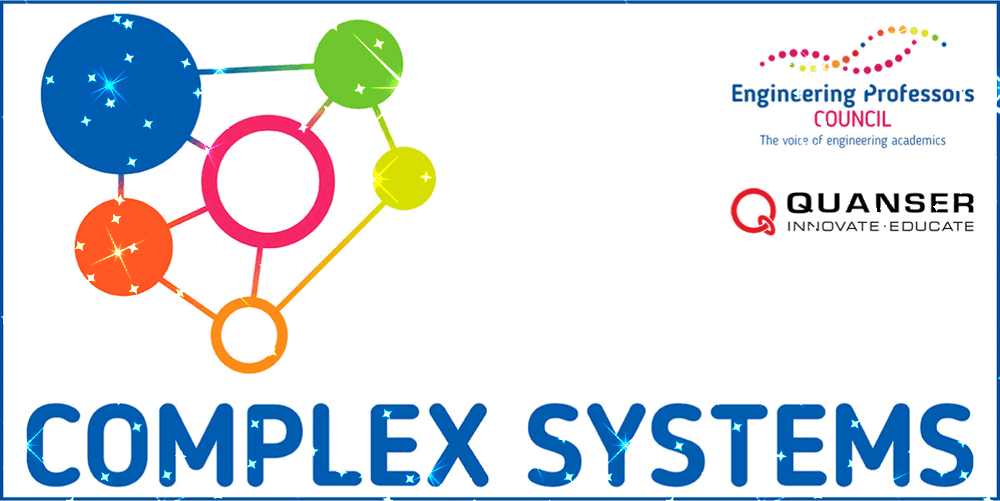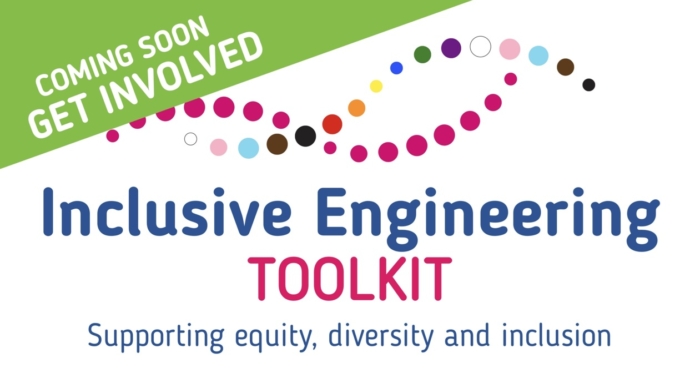The EPC’s Complex Systems Toolkit is now live, providing accessible, practical resources for embedding complex systems concepts into engineering education. The Complex Systems Toolkit is supported by Quanser.
Dive into the ‘what’ and ‘how’ of complex systems with our knowledge and guidance articles, and discover our ready-to-use teaching resources, including case studies and other classroom activities. Come along to our official launch webinar on 9th December for a live demo, and to hear directly from the creators and partners who helped shape the Toolkit. Register here. If you can’t join us for the live webinar, register anyway and we’ll send you a link to the recording as soon as it’s available.
Why do we need a Complex Systems Toolkit?
- Today’s engineering challenges involve an increasing range of technical and non-technical factors that interact in non-linear and unpredictable ways. This requires developing graduates who can collaborate across disciplines and navigate complexity, and manage complex systems, not just solve technical problems in isolation.
- The Complex Systems Toolkit addresses critical gaps in engineering education by equipping students with the skills to design systems that are not only technically sound but also resilient, trustworthy, and ethically robust. These are essential competencies for future engineers.
- Integrating complex systems into engineering teaching aligns with professional standards and accreditation requirements, and also complements institutional goals around interdisciplinarity, sustainability, and EDI.
- Engineering educators themselves need to continually learn and adapt their teaching in response to innovations in technology and educational practice, but they often need resources and support to guide them in doing so. The Toolkit provides an opportunity for extending the skills and practices of engineering educators.
What does the Toolkit provide?
- The Toolkit provides guidance on how systems thinking is critical in an interconnected world.
- The Toolkit provides accessible, practical resources for embedding complex systems into engineering education. Bridging technical excellence and real-world contexts, it prepares students for the multidisciplinary challenges they’ll face in industry.
- The Complex Systems Toolkit contains resources that clarify essential terminology, outline key competencies, scaffold learning outcomes, and outline effective teaching strategies and activities that are ready for instant use in the classroom.
How was the Toolkit developed?
- Developed through global collaboration from an interdisciplinary team, the Complex Systems Toolkit reflects expertise across academia and industry and is shaped to evolve through community input and feedback.
- Engineering educators will find the toolkit accessible and easy to use regardless of their level of experience teaching complex systems concepts.
Contents
The toolkit currently includes the following, but it is a growing resource and we will be adding further content soon.
- Knowledge resources: Content that users can access to improve their knowledge or find more information. These resources are intended to provide theoretical and practical background on complex systems concepts and tools such as modelling or decision-making approaches. While guidance articles focus on “how”, knowledge articles focus on “what”.
- Guidance resources:Content that users can access to learn how to do something. These resources are intended to provide practical advice on subjects such as how to explain complex systems to students, or how to assess for skills and competencies in complex systems. While knowledge articles focus on “what”, guidance articles focus on “how”.
- Teaching resources: Content that users can access to help them know what to integrate and implement. This can include case studies, which provide examples of complex systems which can be directly utilised in teaching with the suggested tools, as well as other classroom activities such as coursework, project briefs, lesson plans, demonstration simulations, or other exercises.
- Resource library: Signposting users to additional research and resources that may be useful in their learning and teaching.
- Our contributors: Biographies of our Working group members, content contributors, and reviewers. We would like to thank everyone who has contributed to making the Toolkit such a useful and vital resource.
- Our supporters: We would like to thank Quanser for supporting the Complex Systems Toolkit since its inception.
- Get involved: Are you an expert from academia or industry? Find out how you can get involved with the Complex Systems Toolkit.
Our supporters
These resources have been produced by the Engineering Professors’ Council in partnership with Quanser.
Licensing
To ensure that everyone can use and adapt the toolkit in a way that best fits their teaching or purpose, most of this work is licensed under a Creative Commons Attribution-ShareAlike 4.0 International License. Under this licence you are free to share and adapt this material, under terms that you must give appropriate credit and attribution to the original material and indicate if any changes are made.
More to come
We are already working on expanding this Toolkit with further Knowledge, Guidance and Teaching resources. Additionally, we are looking to create ‘enhanced’ versions of each case study, including specific teaching materials such as lesson plans, presentations and worksheets. For more information, please contact Wendy Attwell.
This post is also available here.
Any views, thoughts, and opinions expressed herein are solely that of the author(s) and do not necessarily reflect the views, opinions, policies, or position of the Engineering Professors’ Council or the Toolkit sponsors and supporters.





